National Farmer’s Day: The Valley Express Salutes Richard Will
Local News October 12, 2020 Staff 0
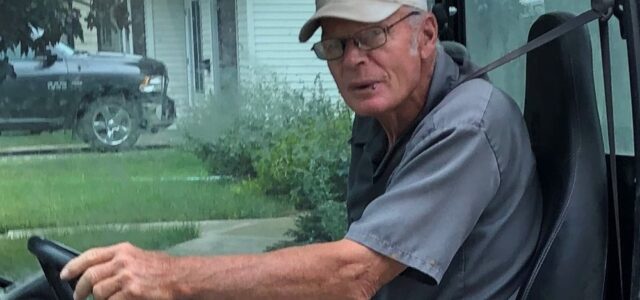
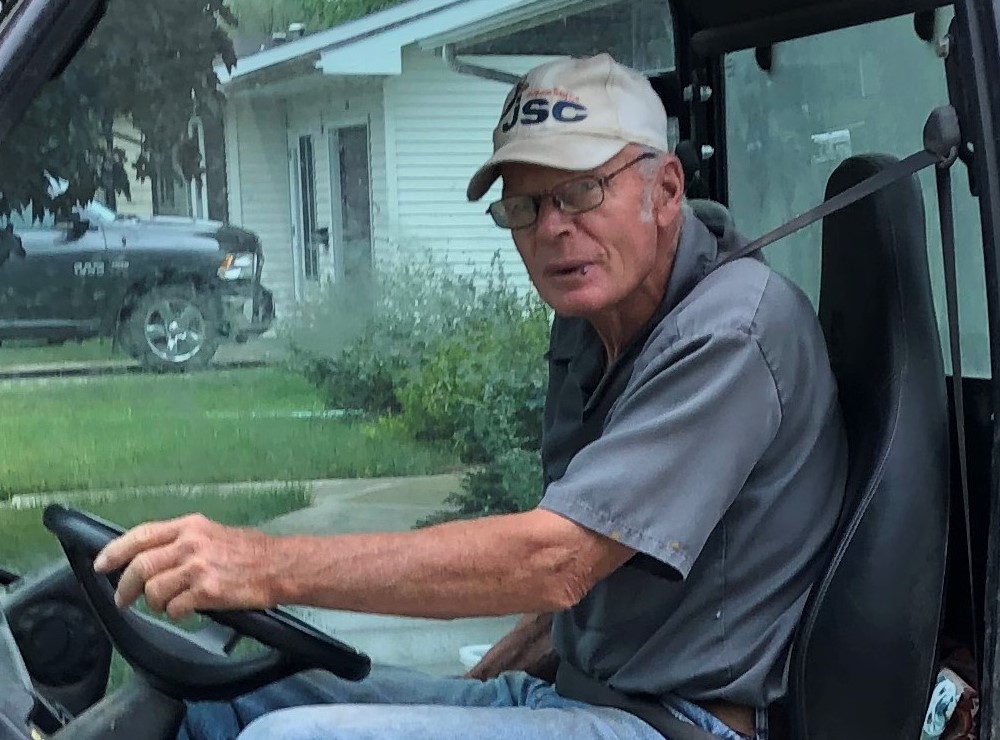
Today, October 12, is National Farmer’s Day. A day we honor all the dedicated, hardworking, and usually under-appreciated men and women who fill our grocery stores and stomachs. Although the Milbank area certainly has no shortage of outstanding examples, Richard Will epitomizes the Midwestern farmer.
Richard has been farming his entire life in rural Milbank. His seed corn hat, green John Deere jacket, and, if isn’t Sunday, the faint scent of diesel oil give him away. Open the dictionary to the phrase “salt of the earth” and right next to it, you’ll find a picture of Richard. Like George Washington, who after two terms as President of the United States said, “ I would rather be on my farm than emperor of the world,” so does Richard appear content with his life and the land.
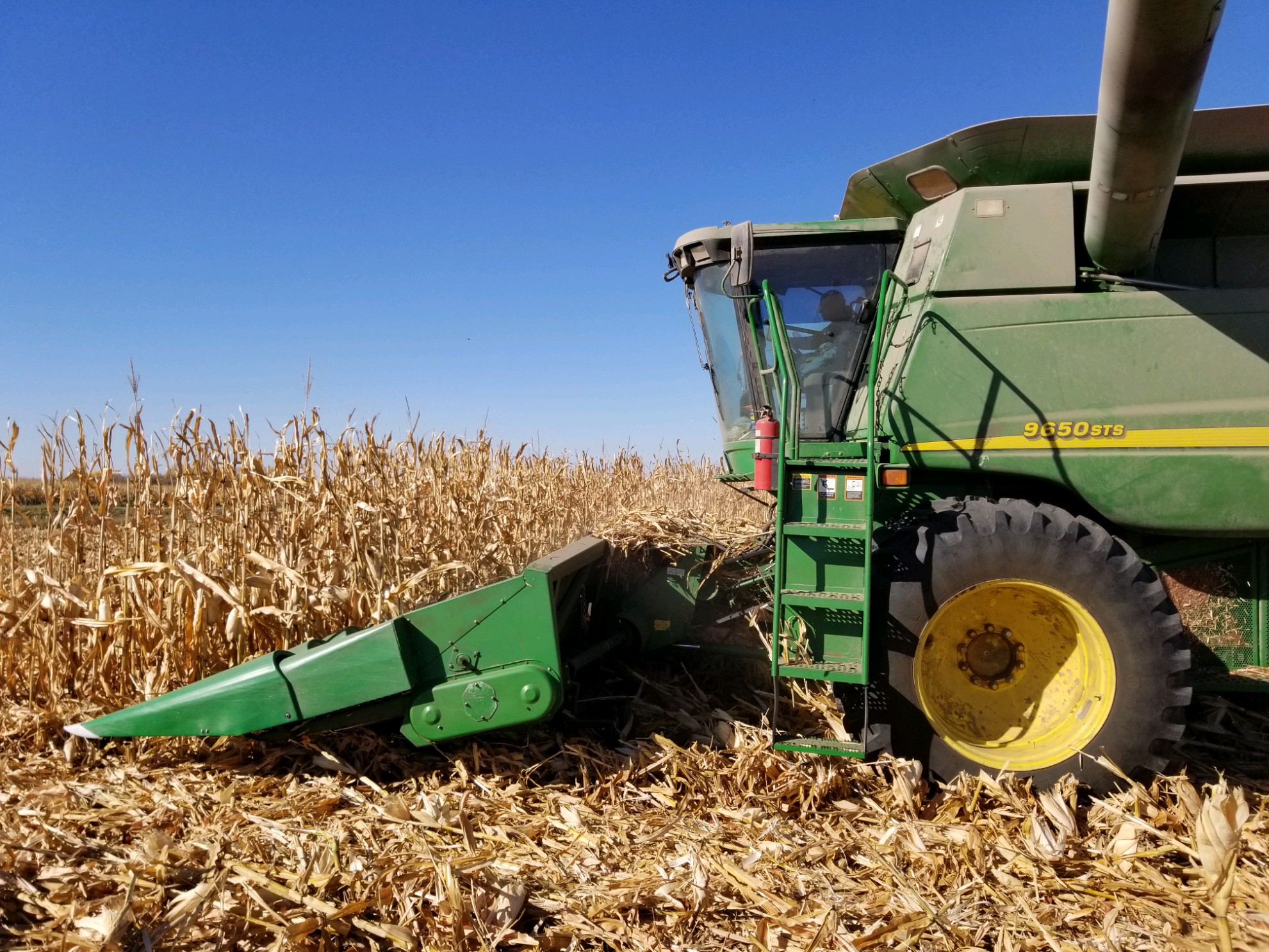
Which brings us back to “salt of the earth.” The phrase from the Book of Matthew and Jesus’s Sermon on the Mount implies people need to live as pure a life as possible in order to flavor or bless others. Richard drives about in his well-loved silver pick up – the one Elaine calls the old farm truck and Richard calls the town truck — generously blessing others. But you’ll never hear it from him. Humble is his middle name.
And there’s no doubt farming has a way of keeping people humble. Drought, flooding, blizzards, and blight all make it impossible to rely on anything but faith that the sun will come up again tomorrow.
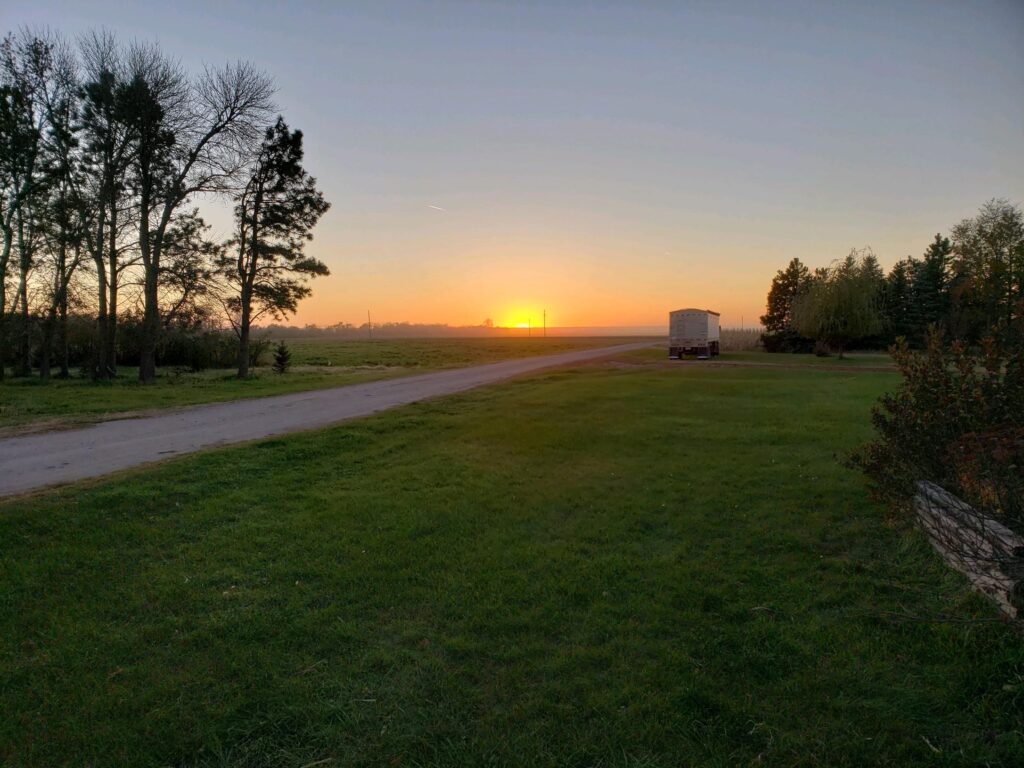
Richard, of course, learned all this at his father’s knee. His parents, Otto and Loena bought the farm Richard and his three siblings grew up on southeast of Milbank. Richard says, “We farmed with horses and milked the cows by hand because we didn’t have electricity. My dad bought his first tractor in about 1945.”
But it isn’t only the hardships Richard remembers. It’s also the hundreds of times neighbors and relatives arrived at the farm during harvest. He recalls the long days spent picking corn by hand, threshing, and caring for the pigs and steers. And with great fondness he remembers sharing field lunches under bright blue skies and watching the golden wheat dance in the prairie wind.
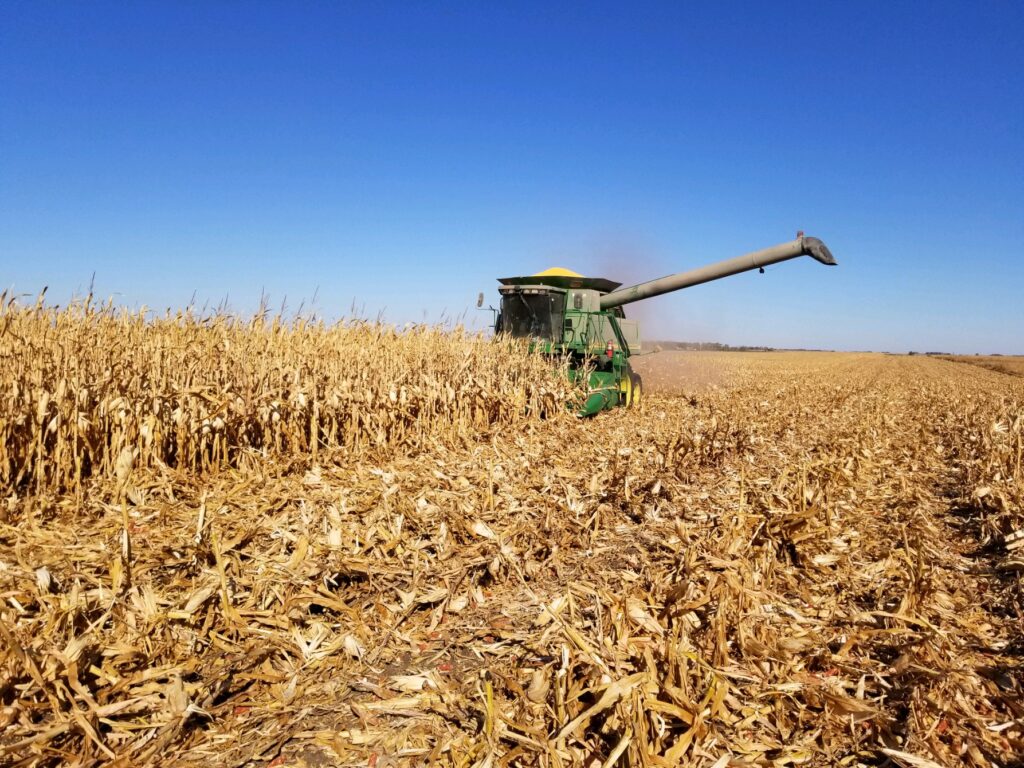
He says, “The long hours haven’t changed. Even with all the modern conveniences, there are still never enough hours in the day to get everything done.” And as he helped his father, so did his four children help him. Richard purchased his farm in Vernon Township in 1972, and his sons — Casey, Mike, and Matthew, and daughter Elisabeth helped raise a garden, harvest the vegetables, tend the cattle and hogs, befriended the chickens and ducks, and milk the cows and one goat. Richard says. “The kids sometimes even helped repair the farm machinery. Matt was especially drawn to fixing the equipment.”
He says it was a time of children’s laughter ringing through the yard like cowbells and days of friends and extended family stopping by for coffee and cake. But just like crops, kids mature. Casey went to North Dakota State School of Science (NDSSS) and moved to Minneapolis to became a computer programmer. Mike attended Brown Institute and was hired as a radio broadcaster in Watertown. Elisabeth went to the University of Iowa to become a lawyer and now lives with her husband in St. Paul. Matthew was always interested in farming and attended Lake Area Tech in Watertown. He headed right back to the farm with his degree in diesel mechanics, and the two worked side by side until Matthew’s death from cancer in 2015.
Richard was employed at John Deere and Matthew had taken on more and more of the responsibilities of managing the farm, but during Matthew’s illness and after his death, Richard found the farm work didn’t do itself. And so with a weary body and a heavy heart, he picked himself up and did what needed to be done.
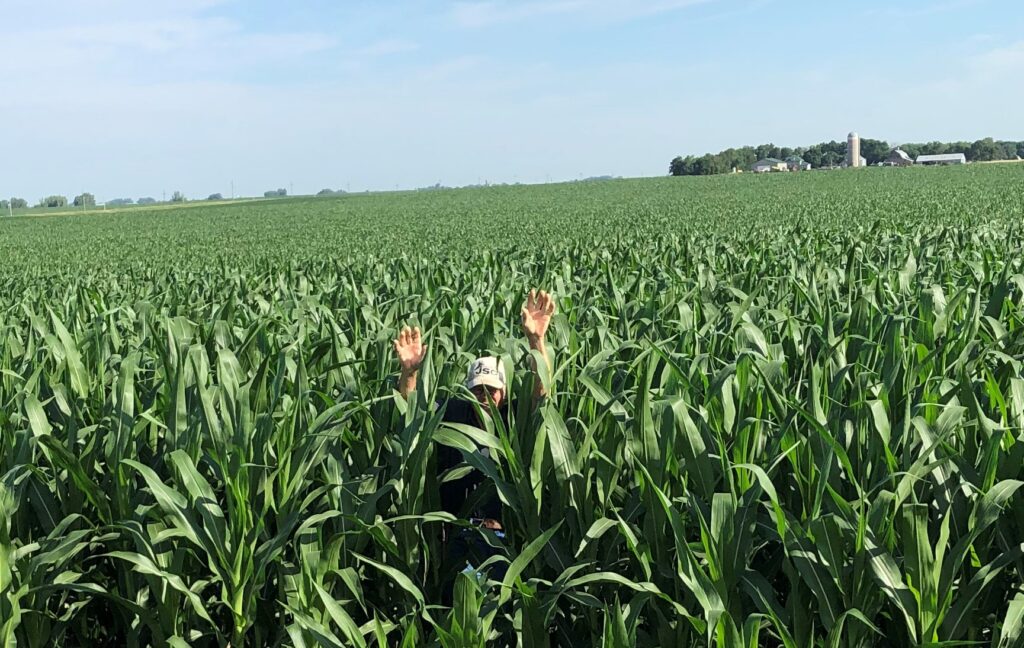
Elaine, their dog Laci, and five barn cats help out as much as possible. Elaine was raised in a small town in Nebraska and loves the farm and watching the change of seasons. She says, “Last week, I followed the combine in the field to pull the bean and corn head on a trailer.” But for Richard, with over 70 years of turning the South Dakota soil — except for the two years he spent in the US Army — farming is an enormous job. One he knows like the back of his calloused hand, but it’s still demanding. It’s ironic he says the most difficult part of farming today is “marketing.” And so it was a great relief and exciting moment when Casey returned home to work on their farm. Elaine was happy because… well, isn’t that what every mother hen hopes for? And Richard was happy because two people can get so much more done. And there are always a million things to do, and so many things to pass on to the next generation.
The world appears to be an uncertain place, but a farm rarely stops. For 365 days of the year a farmer is busy creating food for that world. Richard says “every day I get up knowing there’s a purpose to my life.” And there’s a rhythm to his work. Mother Nature’s in charge, but boy does she need help!
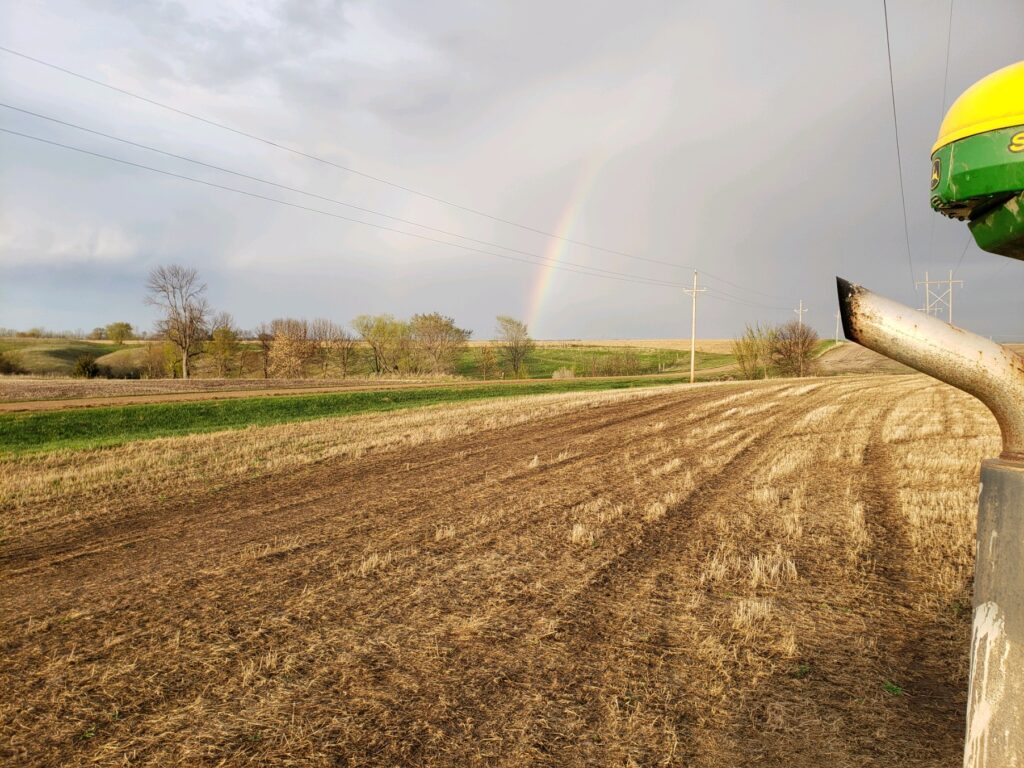
He says his favorite food is hamburger with fries or mashed potatoes. Meat and potatoes – the iconic meal for the Midwestern farmer and millions of other Americans. But there’s a joy in eating a hamburger or a potato you raised yourself or started from a seed, and a satisfaction in knowing you helped feed about 155 people that day and every day. But talk to a farmer — a stewart of the land and faithful servant of the Lord —a farmer such as Richard Will, and you’ll hear echoes from the famous poem by Joyce Kilmer, “Only God can make a tree.” And corn, and wheat, and beans, and……
Photos courtesy of the Will family












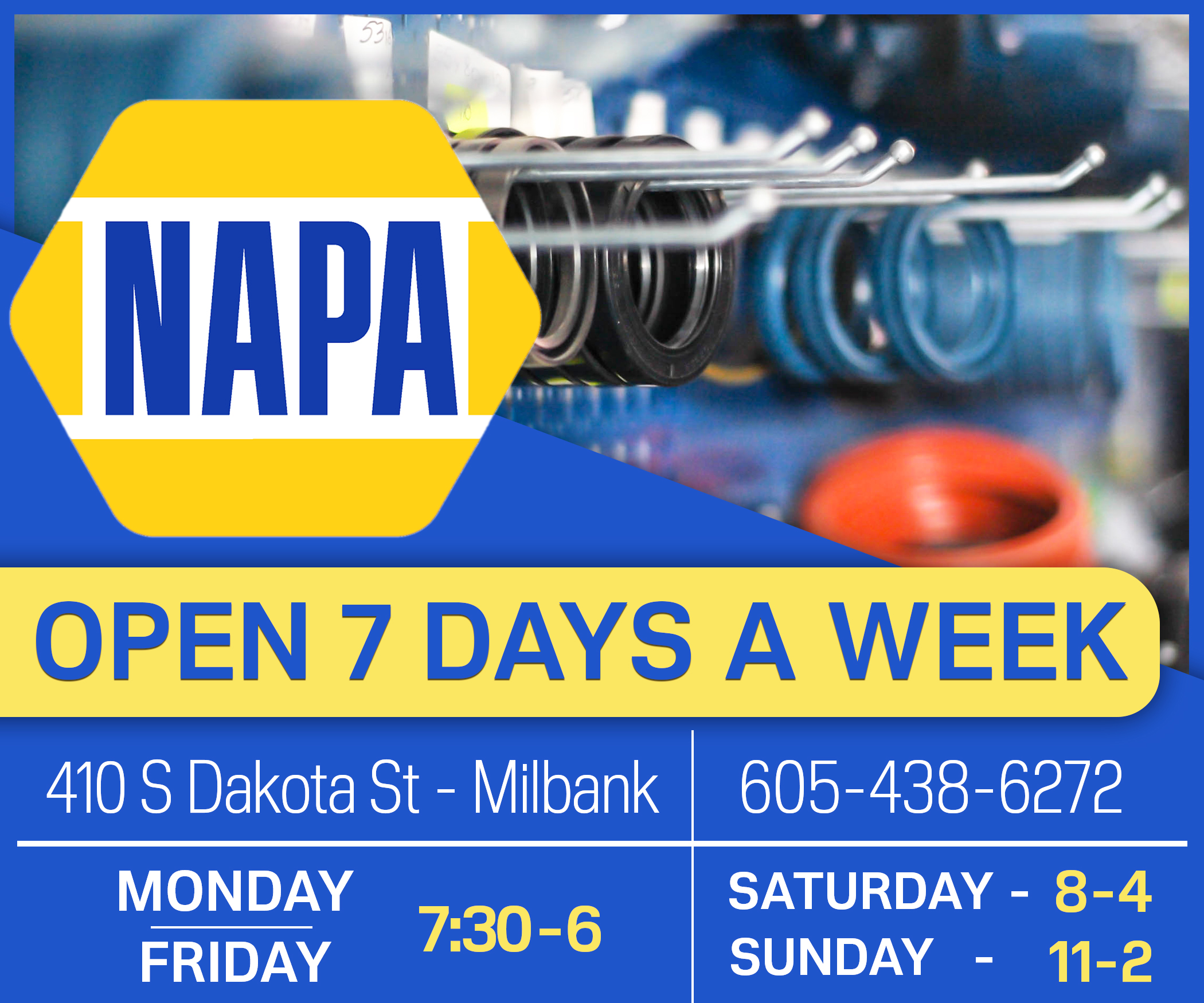
No comments so far.
Be first to leave comment below.